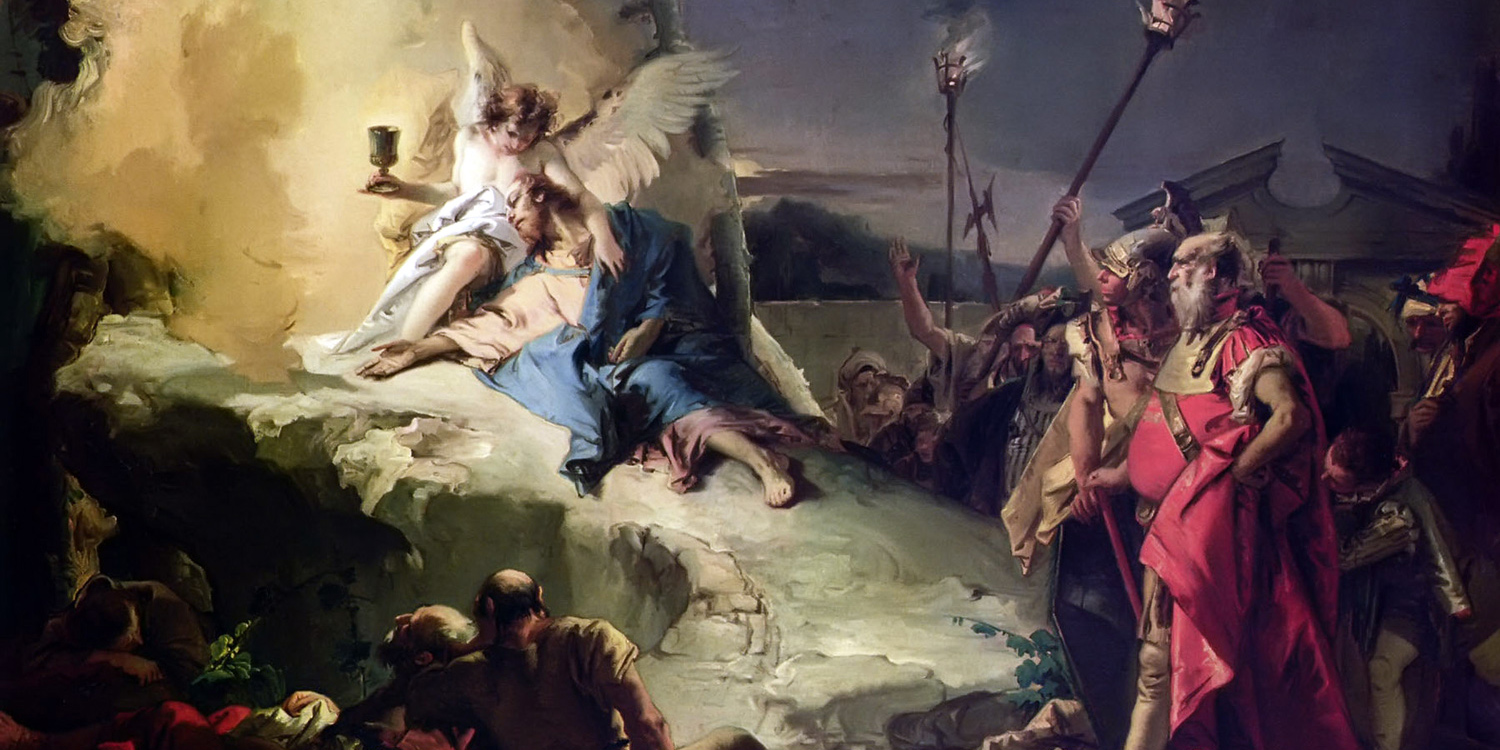Pope Leo XIV – Inaugural Mass Homily
Elected on May 8, 2025, as the 267th successor of St. Peter, Pope Leo XIV’...

Saint John Chrysostom here speaks of the gift of prayer from the heart as continual conversation with God that proceeds from longing for God. Prayer is a grace that lifts the soul into the heavens where it embraces God and brings both joy and light to the soul.
The highest good is prayer and conversation with God, because it means that we are in God’s company and in union with him.
When light enters our bodily eyes our eyesight is sharpened; when a soul is intent on God, God’s inextinguishable light shines into it and makes it bright and clear. I am talking, of course, of prayer that comes from the heart and not from routine: not the prayer that is assigned to particular days or particular moments in time, but the prayer that happens continuously by day and by night.
Indeed the soul should not only turn to God at times of explicit prayer. Whatever we are engaged in, whether it is care for the poor, or some other duty, or some act of generosity, we should remember God and long for God. The love of God will be as salt is to food, making our actions into a perfect dish to set before the Lord of all things. Then it is right that we should receive the fruits of our labors, overflowing onto us through all eternity, if we have been offering them to him throughout our lives.
Prayer is the light of the soul, true knowledge of God, a mediator between God and men. Prayer lifts the soul into the heavens where it hugs God in an indescribable embrace. The soul seeks the milk of God like a baby crying for the breast. It fulfills its own vows and receives in exchange gifts better than anything that can be seen or imagined.
Prayer is a go-between linking us to God. It gives joy to the soul and calms its emotions. I warn you, though: do not imagine that prayer is simply words. Prayer is the desire for God, an indescribable devotion, not given by man but brought about by God’s grace. As St Paul says: For when we cannot choose words in order to pray properly, the Spirit himself intercedes on our behalf in a way that could never be put into words.
If God gives to someone the gift of such prayer, it is a gift of imperishable riches, a heavenly food that satisfies the spirit. Whoever tastes that food catches fire and his soul burns for ever with desire for the Lord.
To begin on this path, start by adorning your house with modesty and humility. Make it shine brightly with the light of justice. Decorate it with the gold leaf of good works, with the jewels of faithfulness and greatness of heart. Finally, to make the house perfect, raise a gable above it all, a gable of prayer. Thus you will have prepared a pure and sparkling house for the Lord. Receive the Lord into this royal and splendid dwelling — in other words: receive, by his grace, his image into the temple of your soul.
Saint John Chrysostom, archbishop of Constantinople, died in the early 5th century and was one of the greatest fathers, doctors, and preachers of the Early Church. This post is an excerpt from one of his homilies on prayer as the gift of continual conversation with God (Supp., Hom. 6 De Precatione: PG 64, 462-466). It is used in the Roman Office of Readings for the Lenten Friday after Ash Wednesday. The accompanying biblical reading is taken from Exodus 2:1-22.
For more great ideas for the Lenten Season, see the 40 DAYS OF LENT section of the Crossroads Initiative Library.
No Comments